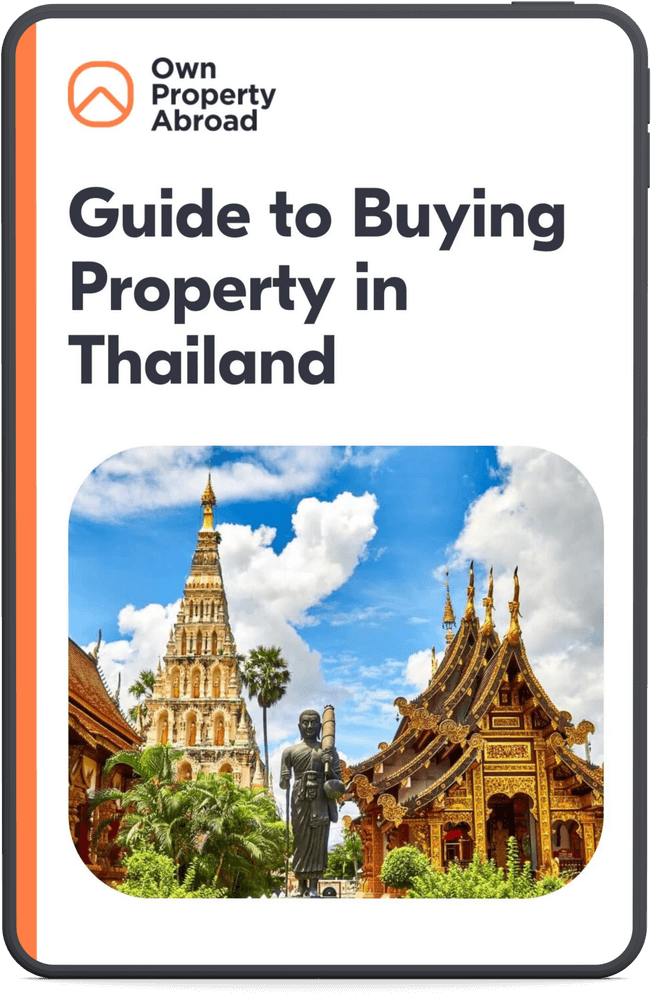Can foreigners buy land in Thailand?
The Land Code Act determines whether foreigners can buy land in Thailand. According to this law, foreigners are prohibited from registering land and restricted from owning and buying land in Thailand. This makes buying land as a foreigner nearly impossible because only Thai citizens have the full right to register land in their names. As such, indirect purchases have become the closest option for foreigners when buying land in Thailand.
Valuable insights and practical advice, distilled from years of expertise and real-world experience.


Buying land in Thailand as a foreigner
Foreigners can buy land in Thailand indirectly through these three methods.
Option 1: Registering a Thai company
Land ownership in Thailand under a registered Thai company is possible. Many foreigners buy land in Thailand using this method. Foreigners register a Thai company and own 49% of it, while Thai nationals own the remaining 51%. The land acquired by the company will be under the company’s name.
What to look out for:
- Company land registration: Land is registered to the company under the company’s name and not directly registered to the owners. This means that the company owners only act as indirect owners of land.
- Difficult to establish: Foreigners buy land in Thailand through a Thai company, which requires work. Moreover, establishing a Thai company requires considerable investment, on top of the regulations and due diligence that must be followed.
Cost and fees:
- Registering a company: Costs around ฿ 25,000 ($744) to ฿ 31,000 ($922). This total can be traced to various registration fees: The company stamp fee is worth ฿ 500 ($14.87). The government fee is ฿ 6,500 ($193) for ฿ 1 million ($29,740) and an additional฿ 6,000 ($178) for a subsequent ฿ 1 million ($29,740). A VAT of 7% is also added, which is around฿ 1,190 ($35.39) for a capital of ฿ 1 million ($29,740).
- Buying land: Foreigners buy land in Thailand at prices ranging from ฿ 5.23 million ($155,540) to ฿ 33.9 million ($1.01 million). Land prices vary depending on the area and location. In some places, such as Bangkok, land prices are higher than in other, more rural areas.
Option 2: Using a leasehold agreement
Foreigners buy land in Thailand by entering a leasehold agreement with a Thai citizen. In a leasehold agreement, land is rented for a period specified in the contract, which may last up to 99 years. The foreigner is entitled to develop the land during the agreement’s term.
What to look out for:
- Restrictions: A leasehold agreement outlines the limitations on a leaseholder’s rights and control over the property. It sets the rules you have to follow while renting the property.
- Limited property rights: Leasehold agreements don’t give you the same full ownership rights as buying the property.
Cost and fees:
- Renting land: Land for rent can cost between ฿ 8,000 ($238) and ฿ 700,000 ($20,818) per month, depending on the type and location. Renting land in urban areas can be more expensive than renting land in rural areas, but it is relatively cheaper than foreigners buying land in Thailand.
- Registration fee: A registration fee is typically paid upon entering the lease agreement. This fee is usually around 1% of the total rental amount for the entire lease period, paid to the local Land Department to register the lease contract.
- Stamp duty: Stamp duty is typically around 0.1% of the total rental amount for the entire lease period, and it is paid to the Land Department during registration.
Option 3: Marrying a Thai
Since only a Thai national can register land, marrying a Thai is a viable option. Foreigners buy land in Thailand through their Thai spouse’s name, and although the foreign spouse has no direct land ownership, they become statutory heirs of the land.
What to look out for:
- Being a statutory heir: According to Thai law, a foreigner can inherit land in Thailand if they are a statutory heir. However, a foreign statutory heir is expected to sell the inherited land as mandated by Thai law.
- Ownership issue: Foreigners buy land in Thailand through their spouse’s name, but proving that the land is marital property during divorce will be complex since the married couple must sign declarations at the Land Department stating that the funds used are the separate property of the Thai spouse.
Find land in Thailand with Own Property Abroad
Are you interested in purchasing land in Thailand? Allow Own Property Abroad to guide you through a smooth property transaction. Leveraging our extensive knowledge and direct experience in Thailand’s real estate market, we offer assistance with legal issues, locating property, negotiating deals, and conducting comprehensive due diligence.
Our dedicated team ensures that you navigate the intricacies of the Thai real estate scene with confidence. To learn more about our services, please leave your contact information below or contact us at [email protected].
Valuable insights and practical advice, distilled from years of expertise and real-world experience.


Frequently Asked Questions (FAQs)
What is the foreign ownership limit in Thailand?
The foreign ownership limit on land in Thailand is 0%. This means foreigners cannot own land in Thailand since they cannot register land under their names.
Can foreigners buy freehold land in Thailand?
No, foreigners cannot buy freehold land in Thailand due to the restrictions of the Land Code Act.
Is foreign land ownership in Thailand allowed?
No, foreign land ownership in Thailand is generally not allowed. Still, there are cases when foreigners become indirect land owners, such as buying under a registered Thai company, entering a leasehold agreement, or marrying a Thai national.
Can foreigners own land in Thailand?
No, foreigners cannot own land in Thailand because Thai law restricts them from registering land under their name.




